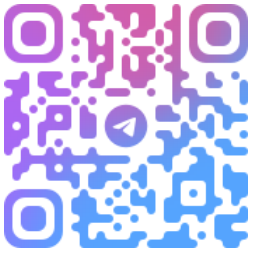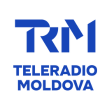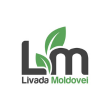Organizații vizate:
Anunțuri de Angajare
- Detalii
- Categorie: Angajări
Extended Deadline: Gender Analyst (NPSA9) - Green Transition Project/UNDP Moldova, Short-Term
Informațiile prezentate în articolul de mai jos pot să nu mai fie actuale sau să nu mai reflecte activitățile și programele curente. Anunțul este păstrat în arhivă pentru a asigura transparența și accesul public la informațiile despre inițiativele și proiectele implementate anterior.
Gender Analyst (NPSA9) - Green Transition Project/UNDP Moldova, Short-Term
Extended Deadline / Termenul-limită extins: 6 February 2025
To apply please follow the link/ Pentru a aplica, vă rugăm să accesați link-ul: APPLY
Job Description
Background
Diversity, Equity and Inclusion are core principles at UNDP: we value diversity as an expression of the multiplicity of nations and cultures where we operate, we foster inclusion as a way of ensuring all personnel are empowered to contribute to our mission, and we ensure equity and fairness in all our actions. Taking a ‘leave no one behind’ approach to our diversity efforts means increasing representation of underserved populations. People who identify as belonging to marginalized or excluded populations are strongly encouraged to apply. Learn more about working at UNDP including our values and inspiring stories.
UNDP does not tolerate sexual exploitation and abuse, any kind of harassment, including sexual harassment, and discrimination. All selected candidates will, therefore, undergo rigorous reference and background checks.
On 23rd of June 2022, the European Council granted the Republic of Moldova the status of EU candidate country which is a substantial achievement, but which comes with great responsibilities and obligations. One of such obligation is the “Green Agenda and Sustainable Connectivity” which includes Chapters of the environment and climate change acquis. In this sense, meaningful reform are expected in view of European Green Deal targets.
The proposed Green Transition Project takes due account of this endeavour. Hence, it will put in place the enabling conditions for a green transformation in Moldova through a combination of cross-sectorial decision-making in joint stakeholder platforms, capacity building measures, general education and awareness raising, dissemination of best policy practices, information sharing and networking, as well as pilot-testing green-transition related solutions and other activities, to ensure that the green transition concept is well understood and implemented.
The established enabling conditions and the investments into green-transition solutions will respond to the key development challenges that the country is currently deadling with such as the climate change, environmental pollution and the energy crisis.
It is well acknowledged that Moldova is highly vulnerable to climate change, given the limited resources and institutional capacities to address the climate change impacts. It is also due to the heavy realiance on the agricultural sector, water scarcity and other geographical factors. Currently the country is advancing with the national adaptation planning, including in the agricultural sector, aimed at putting in place proper
institional, technical and budgeting capacities in the context of climate change, however significant gaps remain in embarking of the sectors into achievement of the long-term adaptation targets.
Environmental degradation is also posing a major threat to Moldova’s development agenda as its economy relies greatly on natural resources which leads to their overexploitation and pollution. Inadequate waste management practices and outdated practices and technologies in the key sectors of the economy also contribute to the environmental degradation and pollution. Mainstreaming of the green agenda into the country’s economic activities is taking place slowly.
Moldova is in line with the global trend of continuously growing urbanization, with the proportion of the population living in urban areas expected to rise from 47% in 2010 to 60% in 2030 (UN Habitat). Cities are increasingly and significantly contributing to the main drivers of global environmental degradation. The municipalities have the greatest impact on air quality and are responsible for more than 50% of total air pollution in Moldova.
From energy security perspective – Moldova is highly dependent on imported energy sources, and rely mostly on the use of fossil fuels. In addition, inefficient energy supply and consumption across all sectors exacerbates the situation. Until recently being 100% dependent on Russian gas import, the country is actively seeking diversification of energy supplies after the war of aggression in Ukraine. Improvements both in energy efficiency and in the development of domestic resources – including renewable energy resources – for strengthened sustainability, competitiveness, and energy security rank high on the political agenda. Energy sector si also the main source of GHG emissions in the country.
Against this background, the Green Transition Project aims to support the Government of Moldova to engage sustainably in a transformative green agenda by enhancing awareness, builsing capacities and encouraging investments into low-emission and resource efficieint economy.
The target areas of the project are resource efficiency, green and circular economy, cleaner and sustainable energy, and mobility.
The Project will be implemented under the following three specific components:
1. Socio-economic framework for a gender-responsive and inclusive green transition enabled.
2. Capacity and awareness on the inclusive green transition increased among key stakeholders.
3. Additional funding attracted by promoting and piloting investments in green and innovative technologies, while evidence-based decision-making for green transition is improved by deploying a reliable air quality monitoring system.
The implementation period of the project is 48 months and the total budget is 10 mln EUR.
Duties and Responsibilities
Scope of Work: Gender Analyst
The Gender Analyst’s primary responsibility is to integrate Gender Equality and Women’s Empowerment (GEWE) principles throughout the Green Transition Project, ensuring that the project components and activities actively contribute to promoting gender equity and inclusivity. The incumbent will develop strategic recommendations, action plans, and tools to operationalize GEWE within the project, aligning with UNDP Moldova’s Country Development Programme and international best practices.
Under the guidance and direct supervision of the Green Transition Project Manager, in close coordination with the UNDP Climate Change, Environment and Energy (EECC) Cluster Analyst, and in collaboration with other team members, the Gender Analyst will ensure the effective mainstreaming of gender considerations across the project’s thematic areas.
The Gender Analyst will:
a) Conduct a Gender Analysis
- Assess the potential for promoting GEWE within all components of the project, including waste management and circular economy, green mobility, and the ESG framework.
- Identify opportunities, challenges, and gaps in the project design and activities related to gender inclusion.
b) Develop a Gender Action Plan
- Create a concrete, actionable plan for integrating GEWE principles into the project’s activities in a meaningful and impactful manner.
- Ensure the plan aligns with national gender policies, UNDP’s gender-related outputs, and global best practices.
c) Provide Gender-Specific Recommendations for Capacity Development
- Design tailored recommendations on integrating GEWE principles into the Capacity Development Programme to be developed under the project.
- Ensure that these recommendations address diverse stakeholder needs, including youth, academia, Local Public Authorities (LPAs), and the private sector.
d) Develop a GEWE Checklist for Vendors and Partners
- Create a comprehensive checklist of actions and provisions to be shared with project vendors and partners, ensuring alignment with the project’s gender equity values.
- Include specific criteria for procurement, partnership agreements, and activity implementation.
e) Analyse Expected Results Through a Gender Lens
- Evaluate the project’s expected outcomes against the gender-related outputs of the UNDP Moldova Country Development Programme.
- Provide recommendations for enhancing gender-related impacts in line with the project’s objectives.
f) Ensure Alignment with UNDP Standards
- Collaborate with project teams to promote results-based management (RBM) principles, ensuring the integration of gender indicators and measures in the project’s monitoring and evaluation framework.
- Support project reporting with high-quality gender-related data and narratives.
g) Facilitate Stakeholder Engagement on GEWE
- Work closely with public authorities, private sector stakeholders, civil society organizations, and development partners to advocate for and promote GEWE principles within project activities.
h) Perform Additional Duties
- Provide ad hoc gender-related advice and expertise as required for the successful implementation of the project.
- Ensure that all project interventions are aligned with UNDP programming, financial, procurement, and administrative rules, regulations, and policies.
By fulfilling these responsibilities, the Gender Analyst will play a critical role in ensuring that the Green Transition Project actively contributes to Moldova’s commitments to gender equality, fostering an inclusive and sustainable green development agenda.
Competencies
Core
- Achieve Results: LEVEL 2: Scale up solutions and simplifies processes, balances speed and accuracy in doing work
- Think Innovatively: LEVEL 2: Offer new ideas/open to new approaches, demonstrate systemic/integrated thinking
- Learn Continuously: LEVEL 2: Go outside comfort zone, learn from others and support their learning
- Adapt with Agility: LEVEL 2: Adapt processes/approaches to new situations, involve others in change process
- Act with Determination: LEVEL 2: Able to persevere and deal with multiple sources of pressure simultaneously
- Engage and Partner: LEVEL 2: Is facilitator/integrator, bring people together, build/maintain coalitions/partnerships
- Enable Diversity and Inclusion: LEVEL 2: Facilitate conversations to bridge differences, considers in decision making
Cross-Functional & Technical competencies
- Business Management - Results-based Management
- Ability to manage projects and projects with a focus at improved performance and demonstrable results
- Business Management - Project Management
- Ability to plan, organize, prioritize and control resources, procedures and protocols to achieve specific goals
- Business Direction & Strategy - System Thinking
- Ability to use objective problem analysis and judgement to understand how interrelated elements coexist within an overall process or system, and to consider how altering one element can impact on other parts of the system
- Business Management - Monitoring
- Ability to provide managers and key stakeholders with regular feedback on the consistency or discrepancy between planned and actual activities and project performance and results
- Digital & Innovation - Agile' methodologies and practices
- Ability to manage projects and processes through continuous iteration, learning and improvement. Ability to manage a self-organising cross-functional teams, foster a team culture of curiosity and learning. Being nimble and being able to improvise and quickly adjust to unforeseen events or changes in conditions or context.
- Digital & Innovation Futures & foresight
- Ability to look at information from the past and present, identify patterns and trends and use them to inform decision making with a long-term view. Being sensitive and able to scan horizons and pick up weak signals of change, explore their potential implications and assess their impact and urgency. Using creativity and imagination to communicate insights in compelling and engaging ways to challenge current mental models; ability to develop scenarios, speculative designs to present future visions or by making it experiential. Being able to facilitate debate and discussion about possible futures; help people to feel comfortable with the discomfort of uncertainty.
- Partnership Management - CSO Engagement
- Knowledge and understanding of CSOs and the ability to engage with CSOs
Required Skills and Experience
Education:
- Advanced university degree (Master’s Degree or equivalent) in gender studies, social sciences, political science, law and other closely related fields is required, or
- A first-level university degree (Bachelor’s Degree) in combination with additional two years of qualifying experience will be given due consideration in lieu of Master`s degree
Experience:
- A minimum of 2 years (with a master’s degree) or 4 years (with a Bachelor’s degree) of progressively acquired experience in promotion of gender equality, capacity building, institutional development, awareness raising and/or communication management, with a preference for experience related to human rights and environmental subjects.
- Experience in the usage of computers and office software packages (MS Word, Excel, etc) and advance knowledge of spreadsheet and database packages, experience in handling of web based management systems.
Additional desired skills and experience:
- Prior experience with UNDP consultancy and/or project implementation;
- Ability to achieve results and deadlines in a timely manner, maintaining a high standard throughout.
- Previous experience in development assistance or related work for NGOs, academia, a donor organization, development partners, UN Agencies is an asset.
The following documents shall be required from the applicants:
- Personal CV or P11, indicating all past positions held and their main underlying functions, their durations (month/year), the qualifications, as well as the contact details (email and telephone number) of the Candidate, and at least three (3) the most recent professional references of previous supervisors. References may also include peers.
- A cover letter (maximum length: 1 page) indicating why the candidate considers him-/herself to be suitable for the position.
- Managers may ask (ad hoc) for any other materials relevant to pre-assessing the relevance of their experience, such as reports, presentations, publications, campaigns or other materials.
The monthly salary for this position ranges from 48,700 MDL to 60,800 MDL, depending on the candidate’s level of experience and qualifications.
Disclaimer
Note: UNDP reserves the right to select one or more candidates from this vacancy announcement. We may also retain applications and consider candidates applying to this post for other similar positions with UNDP at the same grade level and with similar job description, experience and educational requirements.
Non-discrimination
UNDP has a zero-tolerance policy towards sexual exploitation and misconduct, sexual harassment, and abuse of authority. All selected candidates will, therefore, undergo rigorous reference and background checks, and will be expected to adhere to these standards and principles. UNDP is an equal opportunity and inclusive employer that does not discriminate based on race, sex, gender identity, religion, nationality, ethnic origin, sexual orientation, disability, pregnancy, age, language, social origin or other status.
Scam warning
The United Nations does not charge any application, processing, training, interviewing, testing or other fee in connection with the application or recruitment process. Should you receive a solicitation for the payment of a fee, please disregard it. Furthermore, please note that emblems, logos, names and addresses are easily copied and reproduced. Therefore, you are advised to apply particular care when submitting personal information on the web.
- People in Need is hiring a Civil Society Lead (Programme co-Manager)
- Agenția de Guvernare Electronică relansează concursul de angajare pentru suplinirea postului vacant de Dezvoltator software (Kotlin developer)
- Extinderea termenului de selectare a serviciilor de consultanță pentru instruirea autorităților publice locale în domeniul eficienței energetice și elaborarea Planului Local Integrat privind Energia și Clima (PLIEC) al comunei Obreja Veche
- Data Integration Specialist (NPSA-10) - UNDP Moldova
- International Consultant for dam-breaching modelling, risk assessment, and capacity building (UNDP)
Angajări pe Telegram
Nu pierdeți niciun anunț de angajare postat pe site! Urmăriți Canalul dedicat pe Telegram:

Top organizatii
2025 CIVIC DIGITAL SOLUTIONS
Email: support@portal.civic.md








